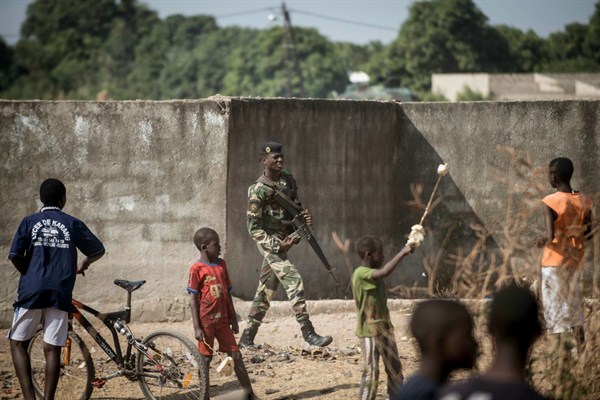Last February, in his address at Gambia’s 52nd Independence Day celebration, the country’s newly elected president, Adama Barrow, referred to Senegal, Gambia’s closest neighbor, as a “friend in times of need.” Just a month earlier, following unsuccessful diplomatic efforts to unseat longtime Gambian strongman Yahya Jammeh, Senegal led a military intervention into Gambia to push Jammeh out.
Jammeh had ruled Gambia with an iron fist for 22 years and refused to relinquish power after losing presidential elections in December. Senegal then became a safe haven for Barrow, who was sworn in as Gambia’s president in the Gambian embassy in Dakar just as troops from West Africa’s regional bloc, the Economic Community of West African States (ECOWAS), entered Gambia.
Under Jammeh’s regime, both Gambia and Senegal experienced decades of strained relations that made it impossible to find common ground. Now that their ties are restored with Barrow in power, thanks to Senegal’s support, the Senegalese government should continue to back Gambia’s new authorities in this fragile transition period—by leaving. For the new Gambian leaders to fully take charge of their country’s security and political developments, Senegal needs an exit strategy out of Gambia.

